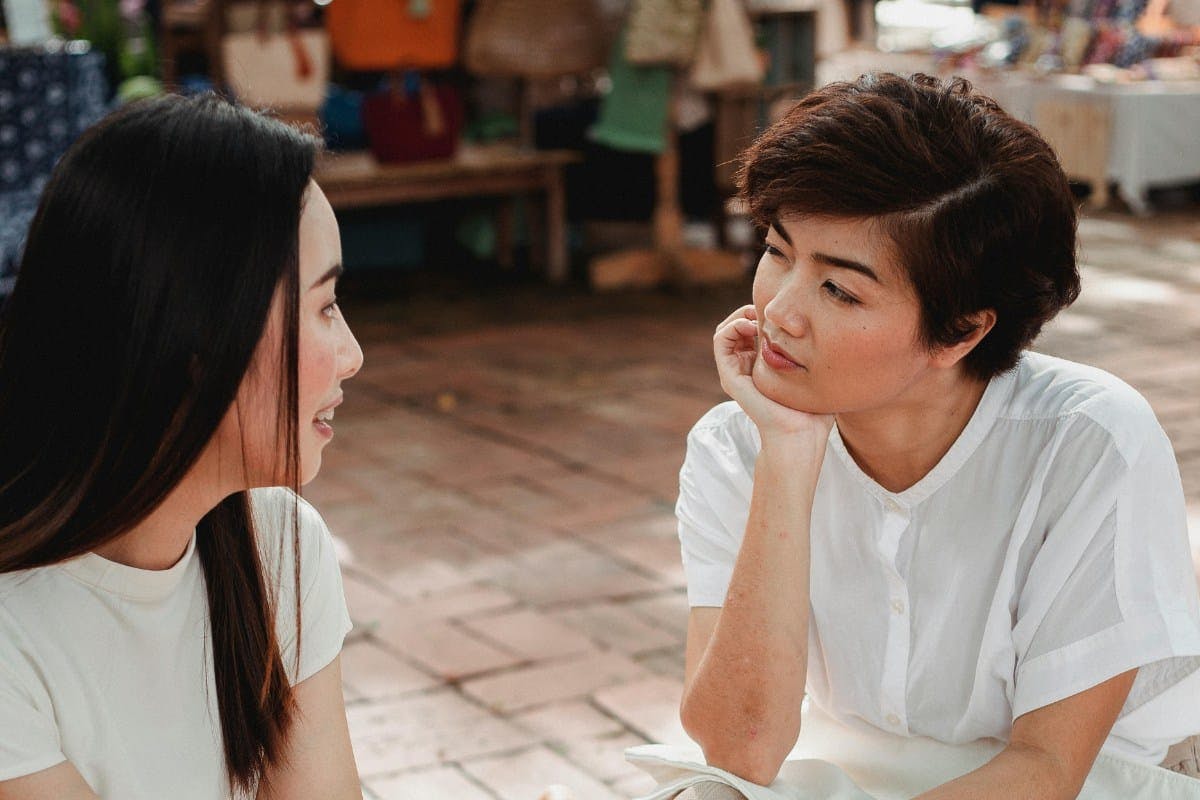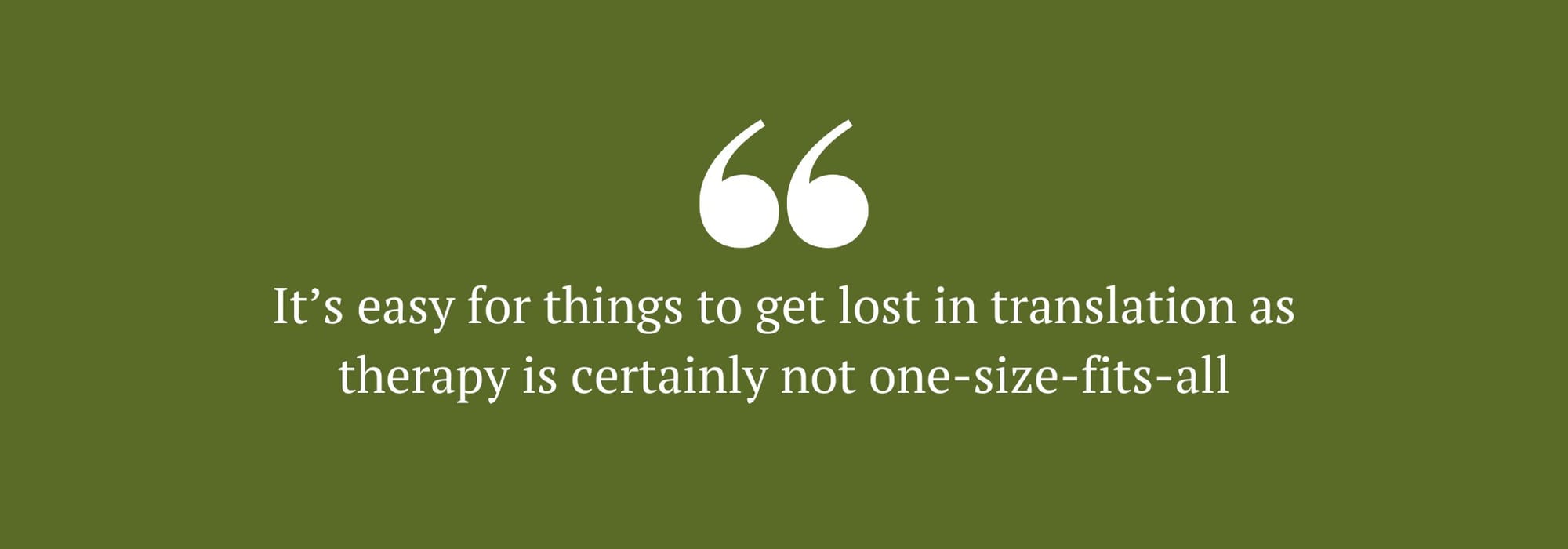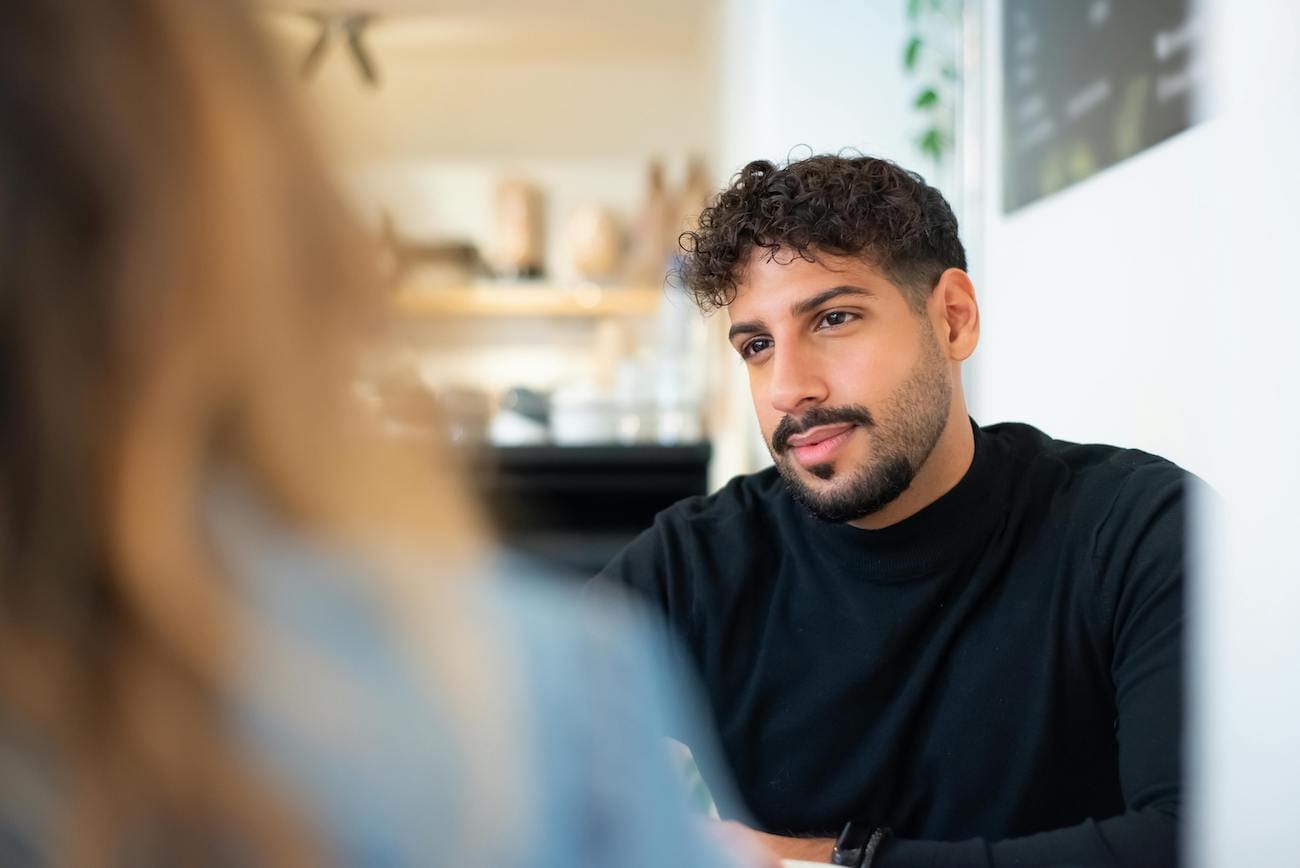
Can sharing words of wisdom from the counselling room ever have negative consequences? And how can you best share advice to support others?
“Well, according to my therapist…” Have you ever started a sentence in this way? Perhaps you’ve been on the receiving end, and heard this little phrase uttered right before a friend divulged something specific they learned in the counselling room.
This is known as ‘trickle down therapy’: the practice of telling friends and family who aren’t in therapy stuff your therapist has told you.
On the face of it, it’s helpful and well-intentioned. If you’re sharing therapy titbits, you’re undoubtedly doing so because you want to help someone you care about navigate challenges of their own. It can be empowering for you to impart wisdom, and notice just how far you’ve come as well.
The thing is, trickle down therapy is kinda problematic. See, it’s easy for things to get lost in translation as therapy is certainly not one-size-fits-all.
Therapists are trained professionals. The conversations they have with you are informed by years of learning. They use active listening skills, and tailor the conversation with you accordingly, so they can best support you on your unique mental health journey.
Telling a friend they need to dig deep into their childhood, or overcome the habit of perfectionism, simply because that’s what your therapist told you, is based on the assumption that your experiences and challenges are the same. All the lessons you’ve learned might not apply to them.
Worst-case scenario, this might confuse them if they are actively trying to find a way to overcome a problem. And if they can’t really relate to the information you’re sharing, they could feel even more isolated.
Add to that, BACP-registered counsellor Georgina Sturmer says therapy is effective because of the relationship between therapist and client – it’s not something you can really recreate by sharing a tip or two with a friend.
“When we look at how and why therapy is effective, the key to remember is that it’s not about tips and tricks and tools. All the research shows that it’s the therapeutic relationship itself that heals,” Georgina points out. “It’s the environment that the therapist and client build together that provides an opportunity for the client to heal and grow.”
A skilled therapist might often steer you to gently explore feelings or past experiences that feel uncomfortable.
“Within the boundaries of the therapeutic relationship, this can be done in a way that is gentle, supportive, and always in the best interest of the client. However, when therapy ‘trickles down’, all these boundaries and protections are taken away,” Georgina explains.

This can be harmful, not only to the person you are trying to help, but to you as well. “There is a real risk that you could re-traumatise yourself, or access depths of anger or anxiety without knowing how to cope with them, or to express them safely,” Georgina warns.
When to share
Sometimes, sharing really is caring, and occasionally you’ll find there are times when something you learned in therapy really is helpful.
Perhaps a friend is going through something very similar that you’ve talked about in great detail with your therapist. Maybe they need help breaking a certain thought pattern, and you just so happen to have spent a lot of time on this in your past therapy sessions.
In these scenarios, it’s OK to chat through your experiences and how they’ve helped you, without offering your friend advice. It’s good to do this with a disclaimer. A quick: “Hey, I learned this really cool thing in therapy this week. It might not help you, but it’s certainly helped me,” can go a long way.
In the same vein, Georgina says there are some insights that can offer really ‘user-friendly’ ways of understanding ourselves.
One of them is the ‘Parent-Adult-Child model’ from Transactional Analysis theory, which was developed by Eric Berne. “It’s an incredibly complex theory, but at a really simple level it can be used to help people notice when they shift or default to certain patterns when they are relating to other people,” Georgina says.
What might that look like in a conversation with a friend? It could mean sharing your own experiences of identifying unhelpful patterns, and encouraging your friend to do the same.
Of course, sharing mental health information is vital if you believe a friend is in a mental health crisis. When acute support is needed, sharing mental health resources – like helplines, for example – or reaching out on behalf of your friend, will prove more useful than doling out therapeutic advice.
If a friend or family member comes to you with a problem, trickle down therapy isn’t the only way you can offer them your support.

“Reflect on what it is about your own personal therapy that has been really helpful,” Georgina says. “Maybe it’s the calmness and having the space to breathe. Maybe it’s knowing that you’re sitting with someone who doesn’t offer their own judgement or agenda. Maybe it’s gaining an insight into your own thoughts, and unpicking your feelings.”
Then, think about how you can offer this experience to other people in your life. “It’s not about suddenly becoming a ’therapist’ in your friendships and relationships. But about noticing what you’ve really enjoyed, and thinking about how some of those behaviours might enrich your relationships with those around you.”
So, even if you have the best intentions, remember there can be better ways to support your loved ones than reiterating your counsellor’s word of wisdom. You might not be a therapist, but you can still be a good friend, even if it means leaving therapy to the professionals.

